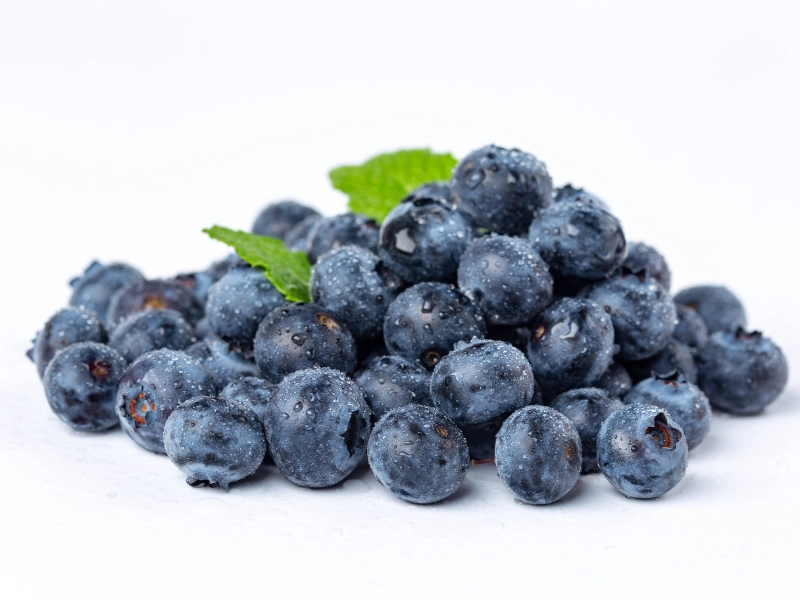Blueberries: The Journey to Superfood Status - A Scientific Analysis of Their Nutritional Value
Advertisement
2. The Nutritional Profile of Blueberries

Advertisement
Appreciating blueberries' superfood designation depends on knowing their nutritional profile. These little berries are a great complement to any diet since they are bursting in an amazing range of nutrients. Let's dissect the elements of nutrition that support blueberries' standing as a health powerhouse.
Blueberries are, first and most importantly low in calories yet rich in nutrients. Fresh blueberries, roughly 148 grammes, one cup has about 84 calories, hence they are a great alternative for individuals trying to control their calorie count. Blueberries, despite their low calorie count, are nutrient-dense and provide a broad spectrum of vitamins, minerals, and other helpful chemicals.
Blueberries' great nutritional value stems mostly from their high fibre count. About 3.6 grammes of dietary fiber—roughly 14% of the required daily intake—that same one-cup portion offers. intestinal health depends on fibre; it also helps to maintain normal cholesterol levels and adds to a sensation of fullness, which may help control weight.
With one cup offering roughly 24% of the advised daily consumption, blueberries are also a great source of vitamin C. Immune system, skin condition, and bodily functions depend on vitamin C; it also serves as a potent antioxidant. Blueberries also include large concentrations of vitamin K, which is crucial for bone health and blood clotting.
Regarding minerals, blueberries offer roughly 25% of the daily required consumption per cup and contain manganese. Manganese functions in metabolism, wound healing, and bone growth. Smaller concentrations of other vital minerals, including potassium, which supports heart health and helps control blood pressure, also abound in blueberries.
The great antioxidant count of blueberries is maybe the most honoured feature of their nutritional profile. Particularly rich in a class of antioxidants called anthocyanins, which give the berries their unique blue hue, blueberries Among the several health advantages connected to these strong chemicals are lower inflammation and better cardiac function.
Blueberries have various antioxidants beyond anthocyanins including quercetin, myricetin, and kaempferol. These substances cooperate to fight oxidative stress in the body, thereby maybe lowering the risk of chronic diseases and promoting general health.
Blueberries' nutritional value might vary somewhat based on things like growing conditions, maturity, and storage techniques. Still, blueberries regularly rank among the most nutrient-dense fruits available, independent of these differences.
Blueberries are a nutritional powerhouse with low calorie count, high fibre, vital minerals and vitamins, and strong antioxidants combined. Blueberries' superfood reputation stems from their outstanding nutritional profile, which also clarifies why they are so much valued in the field of nutrition and health.
You May Like
Advertisement

